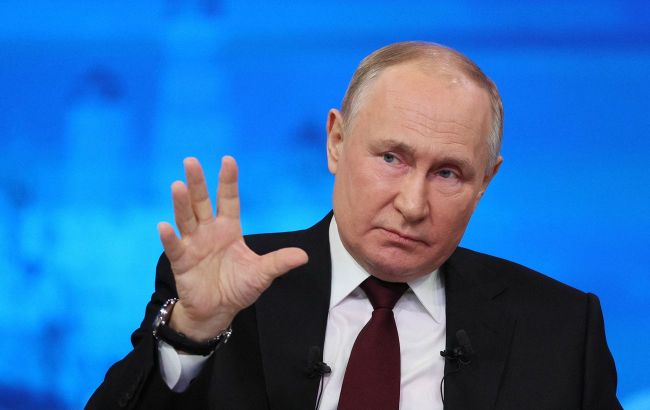ISW assessed impact of Oreshnik strikes and Putin's threats on course of war in Ukraine
 Russian President Vladimir Putin (photo: Getty Images)
Russian President Vladimir Putin (photo: Getty Images)
The missile strike on Dnipro with a ballistic Oreshnik missile and statements by Russian President Vladimir Putin do not indicate significant changes in Russia's strike capabilities or an increased risk of the use of nuclear weapons, reports the Institute for the Study of War (ISW).
The report notes that Russian forces regularly launch ballistic Iskander missiles, hypersonic Kinzhal missiles, and Kh-101 cruise missiles, all of which are capable of carrying nuclear warheads.
Previous Russian missile strikes targeted industrial sites and critical infrastructure, particularly within the city of Dnipro, causing significant damage.
The ISW highlighted that the only fundamentally new feature of Russia's November 21 strike on Dnipro was the use of the Oreshnik missile. This missile, which splits into several parts upon impact, is designed to inflict even greater damage and escalate the risk of a nuclear threat.
The Institute emphasized that Western countries have reliable tools for deterring such threats. They are confident that Putin's nuclear saber-rattling should not prevent Western leaders from continuing to provide support to Ukraine.
"Director Bill Burns cautioned Western policymakers against fearing Putin's nuclear rhetoric in September 2024, describing Putin as a bully who will continue to saber rattle from time to time," the report states.
Nuclear bluff
The ISW believes that Putin's statement from November 21 is merely rhetorical saber-rattling, a demonstration of Moscow's nuclear threat. Putin's recent threats were directed at Western countries that have allowed the Ukrainian Armed Forces to strike deep into Russian territory.
However, the Institute reminded that Ukrainian forces have long targeted what Moscow illegally claims as Russian territory. After the unlawful annexation in 2014, Russia declared Crimea part of its territory. Since April 2023, the Ukrainian military has regularly attacked Russian military sites on the peninsula using American ATACMS ballistic missiles and British Storm Shadow missiles.
The report notes that Russia's use of the rhetoric around red lines has been highly inconsistent, undermining the overall narrative of Russian escalation.
"Putin consistently escalates the war on his own without regard to Western decisions and has consistently declined to retaliate every time Western states have deepened their support of Ukraine. Putin previously threatened severe retaliation if Western states provided Ukraine with rocket artillery, tanks, warplanes, and the ability to strike into Russia, and Putin has constantly shifted the goalposts every time the West has called Putin’s bluff," the ISW asserts.
Russia attacked Ukraine with a new type of ballistic missile
On the morning of November 21, Russian forces launched an intercontinental ballistic missile at Dnipro from the Astrakhan region.
As a result of the attack, an unspecified industrial enterprise (likely the Pivdenmash factory, which produces military and space rockets), a medical facility, and residential infrastructure were damaged.
In the afternoon, Vladimir Putin, during an address to the public, stated that Russia had struck Ukraine with a medium-range ballistic missile called Oreshnik.
He also mentioned the possibility of strikes against the US and the UK, as these countries allowed the Ukrainian Armed Forces to attack Russian territory using ATACMS and Storm Shadow missiles.
The European Union stated that a missile attack of this type indicates Putin's lack of interest in peace talks.
Ukraine's Ministry of Foreign Affairs documented Putin's violations for legal proceedings and noted that the principle of peace through strength should be applied to Russia.

